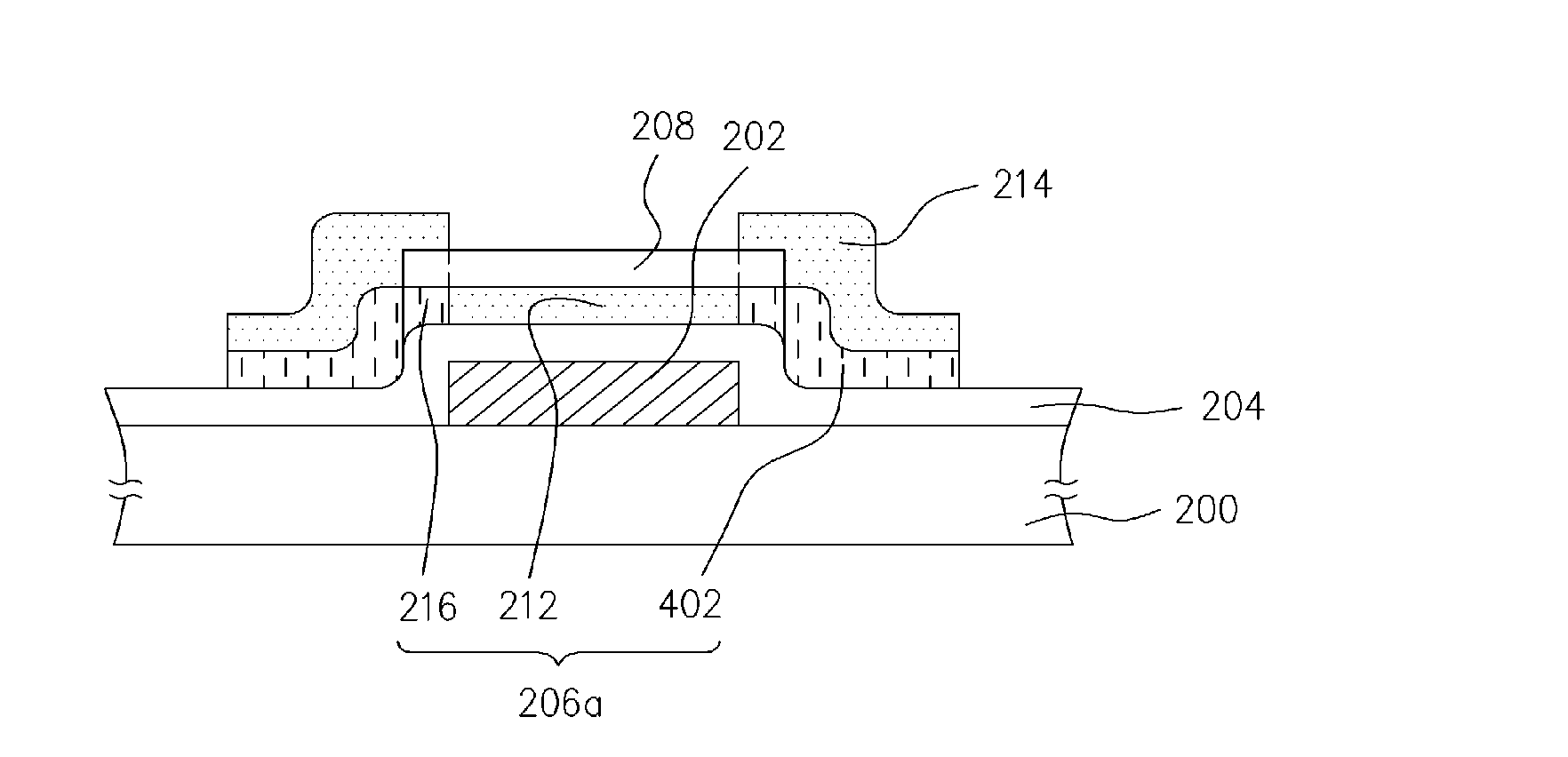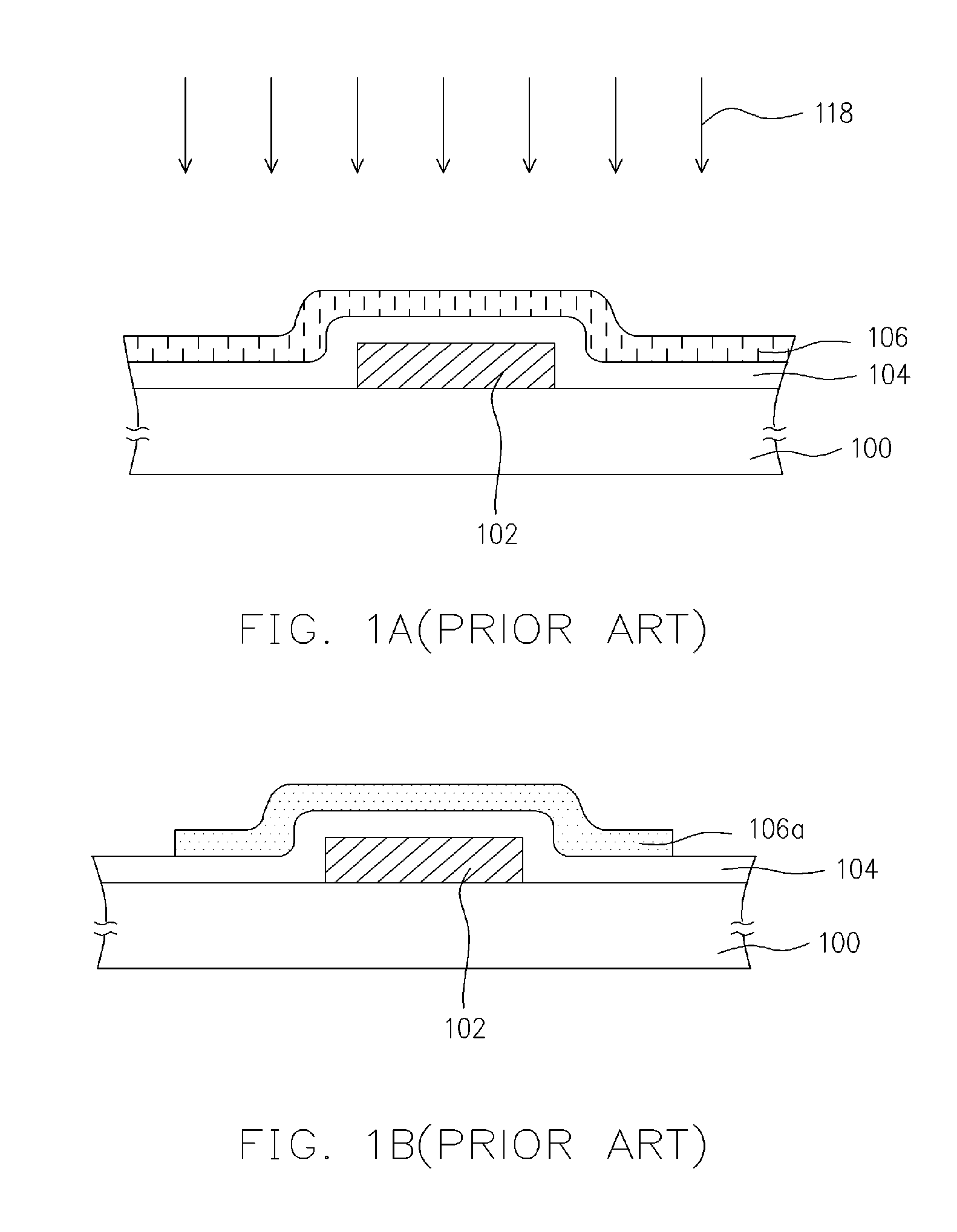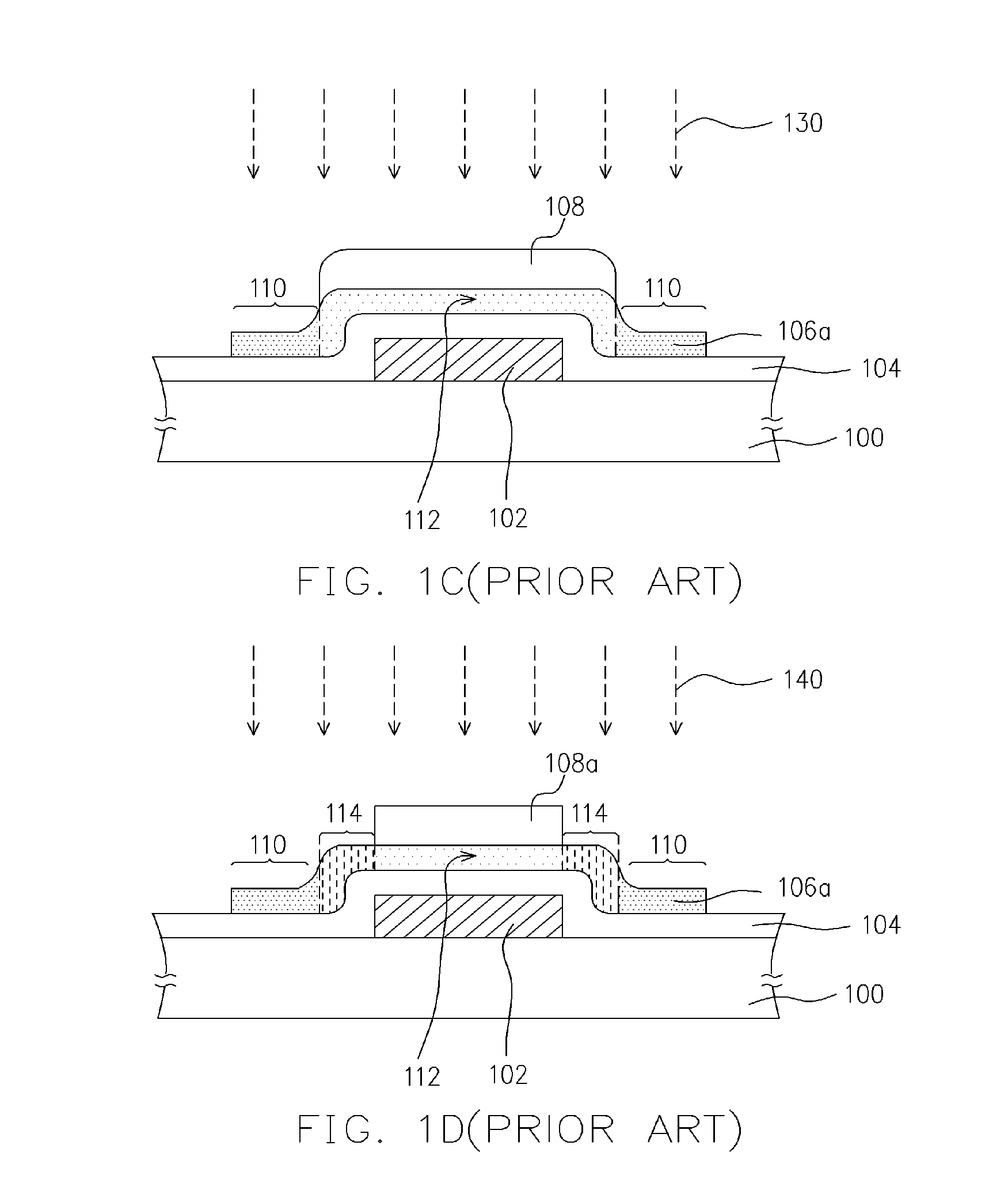Fabrication method of a low-temperature polysilicon thin film transistor
a technology of polysilicon thin film and fabrication method, which is applied in the direction of transistors, semiconductor devices, electrical equipment, etc., can solve the problems of device degradation, complex ldd process, and limited choice of substrate materials to apply to the process, so as to improve device performance
- Summary
- Abstract
- Description
- Claims
- Application Information
AI Technical Summary
Benefits of technology
Problems solved by technology
Method used
Image
Examples
first embodiment
[0033]FIGS. 2A-2H are cross-sectional views showing progression steps of the method of fabricating a LTPS-TFT according to the present invention. Referring to FIG. 2A, a gate 202, a gate dielectric layer 204, a first amorphous silicon layer 206 and a patterned insulating layer 208 are sequentially formed on a substrate 200. The patterned insulating layer 208 is formed on the first amorphous silicon layer 206, and over the gate 202. In this embodiment, the material of the patterned insulating layer 208 includes, for example, silicon nitride, silicon oxide or other dielectric materials.
[0034] Referring to FIG. 2B, the patterned insulating layer 208 serves as a mask for an implantation process, such as ion implantation. The doping ions 230 is doped into a portion of the first amorphous silicon layer 206, which is not covered by the patterned insulating layer 208 to reduce the resistance thereof. It serves as the ohmic contact layer in the subsequent process. The doping ions 230 can be ...
second embodiment
[0043]FIGS. 3A-3C are cross-sectional views showing partial steps of the method of fabricating a LTPS-TFT according to the present invention. Referring to FIG. 3A, after forming the first patterned amorphous silicon layer 206a and the second patterned amorphous silicon layer 210a according to the processes of FIGS. 2A-2D, the source / drain layer 218 is formed on the second patterned amorphous silicon layer 210a and the gate dielectric layer 204. The second patterned amorphous silicon layer 210a serves as the ohmic contact layer of the thin film transistor.
[0044] Referring to FIG. 3B, the structure formed in FIG. 3A is exposed to the excimer laser beams 222. During the annealing process, the first patterned amorphous silicon layer 206a above the gate 202 is melted and then recrystalized, transforming into the polysilicon channel region 212 as shown in FIG. 3C. Because of the excellent thermal conductivity of the source / drain layer 218, the second patterned amorphous silicon layer 210a...
third embodiment
[0046]FIGS. 4A-4B are cross-sectional views showing partial steps of the method of fabricating a LTPS-TFT according to the present invention. Referring to FIG. 4A, after forming the patterned insulating layer 208 over the substrate 200 in accordance with FIG. 2A, a second amorphous silicon layer 310 is formed on the first amorphous silicon layer 206 to cover the patterned insulating layer 208. The second amorphous silicon layer 310 can be, for example, a doped or an undoped amorphous silicon layer.
[0047] Referring to FIG. 4B, a first patterned amorphous silicon layer 206a and a second patterned amorphous silicon layer 310a are formed according to the description of FIG. 2D. The patterned insulating layer 208 serves as a mask for an implantation process to implant ions 230 into the first patterned amorphous silicon layer 206a and the second patterned amorphous silicon layer 310a. The subsequent processes are similar to those of the last embodiments.
[0048] In the fourth embodiment, a...
PUM
 Login to View More
Login to View More Abstract
Description
Claims
Application Information
 Login to View More
Login to View More - R&D
- Intellectual Property
- Life Sciences
- Materials
- Tech Scout
- Unparalleled Data Quality
- Higher Quality Content
- 60% Fewer Hallucinations
Browse by: Latest US Patents, China's latest patents, Technical Efficacy Thesaurus, Application Domain, Technology Topic, Popular Technical Reports.
© 2025 PatSnap. All rights reserved.Legal|Privacy policy|Modern Slavery Act Transparency Statement|Sitemap|About US| Contact US: help@patsnap.com



